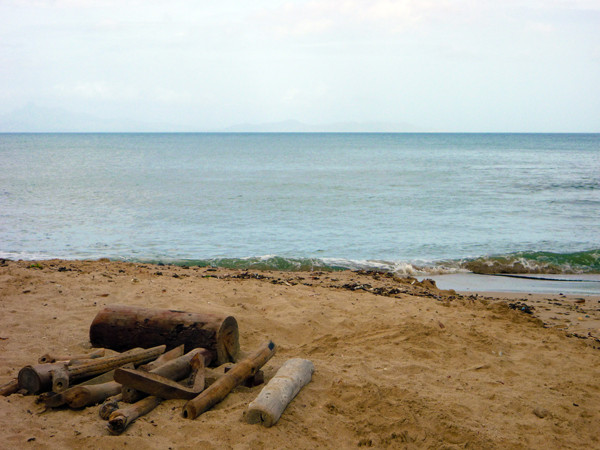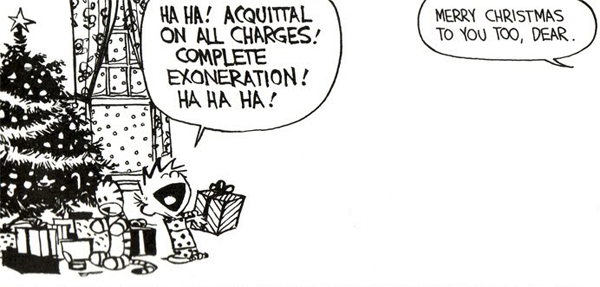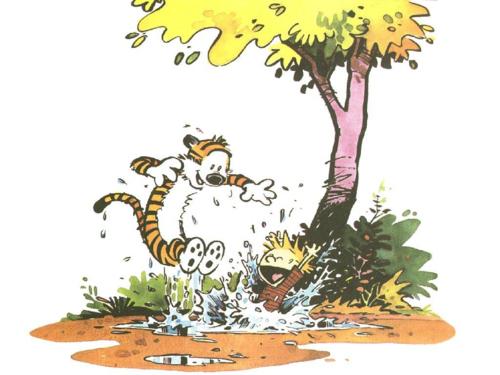Al fin, luego de tantos meses de ausencia, la lluvia ha regresado. Una débil premonición en los nubarrones vespertinos, reforzada por el desespero nocturno de los bachacos. Una esperanza más cierta con las primeras gotas de la madrugada, y finalmente, a las 7, el regreso vehemente, ruidoso, húmedo. La lluvia como una vindicación de los varios caídos durante esta inclemente temporada de sequía: por ejemplo, el viejo y dulce naranjo que alegró muchas de nuestras mañanas ha quedado reducido a alimento para el fuego. Pero ésta, como toda lluvia buena, contiene un mensaje de renovación. En los próximos días, con cada reconfirmación de su llegada, aprovecharemos para plantar nuevos naranjos, nuevas conexiones con los frutos benditos de la tierra. El calor se dispersa, uno siente ganas de escribir, y el jazz vuelve a asomar acompañado por el ritmo feliz e inesperado de las nuevas goteras en el techo 🙂
Category: joie de vivre
Monsters under my bed!
More Calvin & Hobbes humor. Bill Waterson is a genius.
Retazos de una mañana fría
In praise of butter
“From milk, too, butter is produced; held as the most delicate of food among barbarous nations, and one which distinguishes the wealthy from the multitude at large.” (Pliny The Elder, Natural History, 28.35)
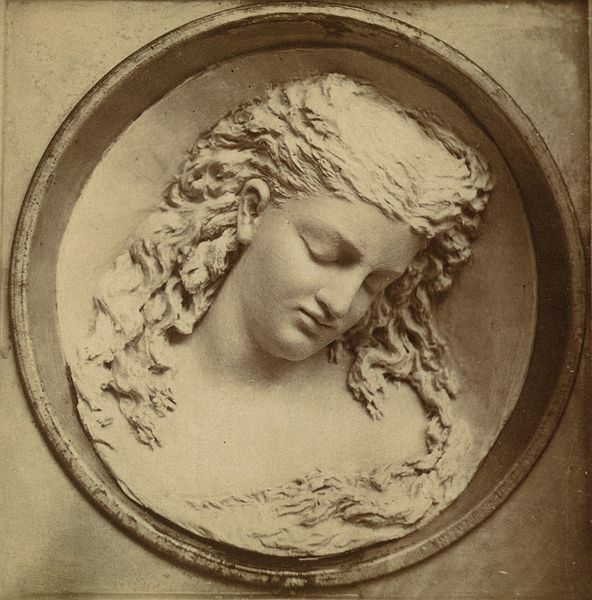
Yesterday, my sister thought of and shared another of her pearls of wisdom: virtue tastes like butter. My sister’s displays of wit are always very welcomed guests set to straighten out some discussions. At the time, a discussion on virtue and its demons, right in the middle of our meal. Suddenly, while savoring a toasty bread spread with butter, she came up with her dairy metaphor. I immediately chimed in, I felt an important resonance stemming from her idea: virtue is good, and so is butter. Simple. But I even dare to go a step further: butter tastes much better than virtue. After all, what’s virtue? An ideal, likely and commendably pursuable, but, nevertheless, more often than not a matter of fiction. A cynical rehearsal would yield this statement: virtue is something that others worry about. But it’s not the case for butter. Butter is impervious to moral’s grounds (except, remarkably, for the perils of gluttony.) Thereby, if one’s able to enjoy dairy foods, butter will be a feast for the senses, and will turn bread into Bread, and breakfast into Breakfast. Barbarous nations of early Europe were aware of this special substance of butter, and they bore derogatory labels from Romans and Greeks, who tagged them as simple “milk-drinkers”. Unfortunately, Mediterranean climate was very harsh on butter, better suited to the climates of northern Europe and its barbarians. And time, perfect master of everything, would prove barbarians right. And time, ancient times, have kept butter as a delicacy, a pleasure coming from the dawn of the world. As Leigh Hunt once stated: “Bread, milk and butter are of venerable antiquity. They taste of the morning of the world.” Bread spread with butter, a breakfast with the family… ah, simple things are the best.
Pursuing virtue might be a complex issue. However, we have butter.. and virtue tastes like butter… so…
“Meanwhile, let us dine and breakfast, like good-humored people; and not quarrel with our bread and butter.” (Leigh Hunt, The Seer, Breakfast Concluded)
After the rain
Last trails of rain are slowly fading away, and the soil, little by little, makes provisions for the chasms of banishment and the madness of a ruthless sun and its warm embattling. That’s the pendulum of nature, a perpetual writhing between hot and cold, smiles and tears, sun and rain, sky and earth… and life is adamantly and eternally linked to the swing. This season, rain has wonderfully abode by sweet evocations of the past, and tasty chocolate, and a wonderful deluge of green skin for the trees, and the realm of water, and elder memories of a boy and his dad and his dogs, and a likely infinite enumeration of happiness. Now the sun will take away all of these soothing remembrances, bringing along the glance of Apollo and the sugar of Syzygium malaccense and the kingdom of bugs, setting aside any trace of pain, casting new life everywhere. Therein, in any derelict breaches of the soul, the new sun rays will sprinkle further seeds of hope and joy, bracing for more adventures, laughter, and vapors of cocoa.
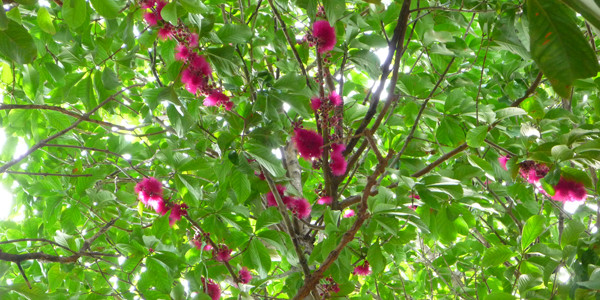
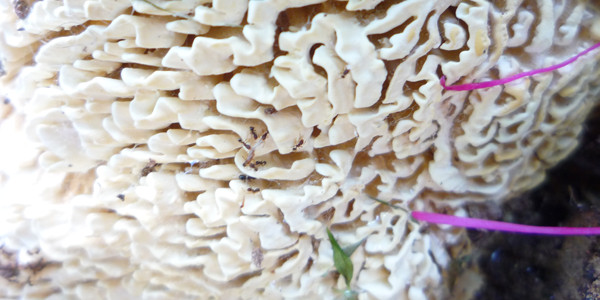
Rain, however, went back on my books, sprouting, without noticing, a conspiracy of mold. To forfend the library we’ll have to iron out these unexpected visitors, this seemingly last trace of rain.
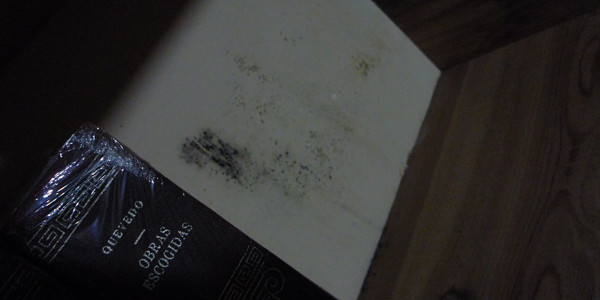
And, after the rain, time to get back to the grind, to the music, to the mathematics, to the chocolat blanc, to the beauty of life.
Merry Christmas to you too
Alguna vez, yo también
You’ve taught me nothing except how to cynically manipulate the system
Las Hormigas
Aparecen por doquier, nacen de la tierra en un instante. Infinitas, te persiguen donde vayas. Es la misma hormiga, con mil cuerpos. Hambrientas, sedientas. Además, pronto llegarán los vientos más fríos: por eso surcan la tierra y recolectan cuanto pueden, infatigables, anticipándose al rigor de la vecina temporada. Por eso, si te descuidas un rato, si te entregas a la inmovilidad durante algunos minutos, sentirás el pinchazo, el recorrido, la reunión sobre tu piel. El día que la naturaleza así lo decida, cuando las condiciones ambientales tornen imposible la vida humana en este planeta, ellas reinarán en la tierra. O acaso ya reinan, o acaso han reinado siempre. Hombre diminuto y prepotente, estás aquí, cuando mucho, desde hace un millón de años. Los insectos, cuando poco, han ocupado la Tierra por más de 400 millones de años.
Eh, sí, hoy me picaron las hormigas.
La Oración del Bombero Atómico
Ésta es mi parte favorita de El Bombero Atómico (1950), una de las mejores películas de Cantinflas.
La escena del baile es quizás la más famosa de la película. Pero me causa tanta gracia esa oración: Ay, eso sí te lo pedimos con mucho fervor Diosito lindo, cuídame, cuídame 😀




